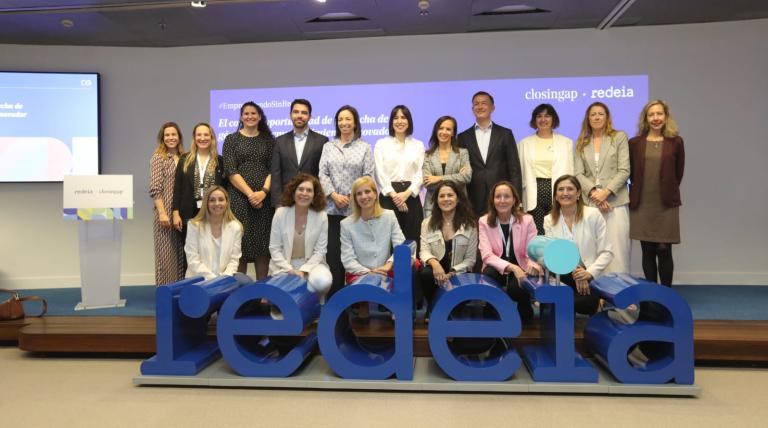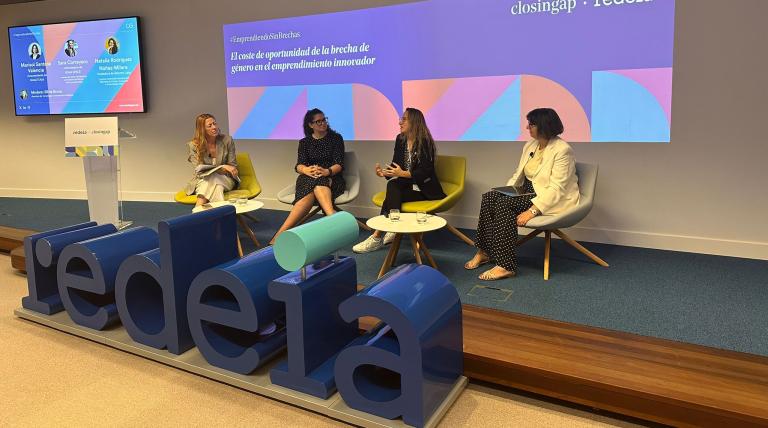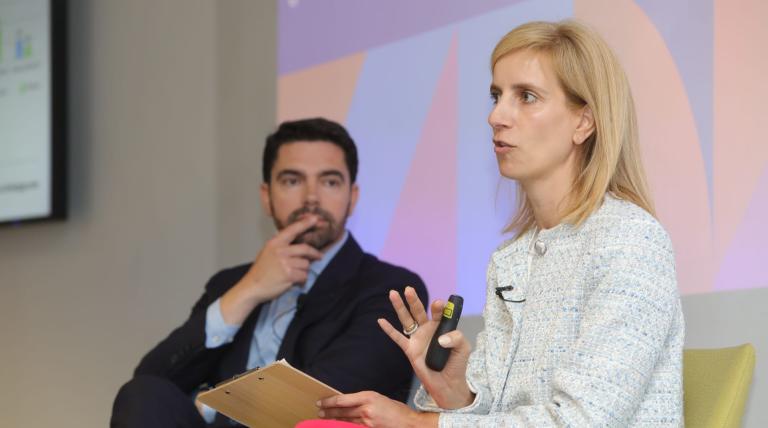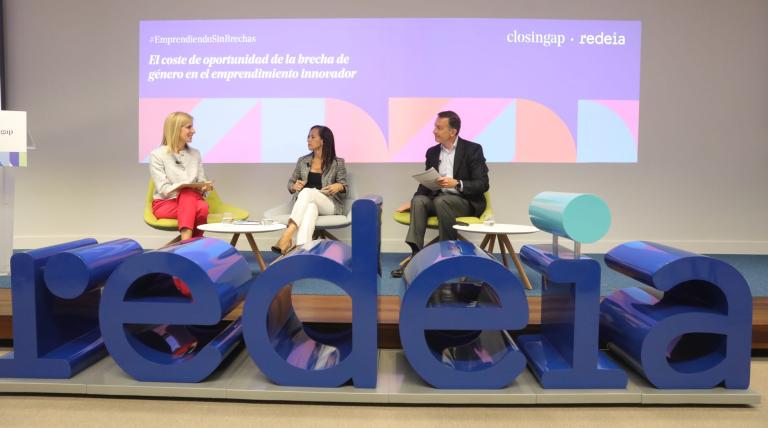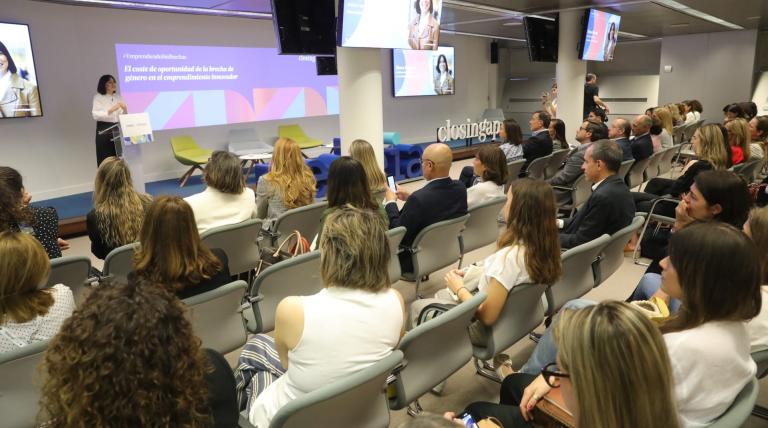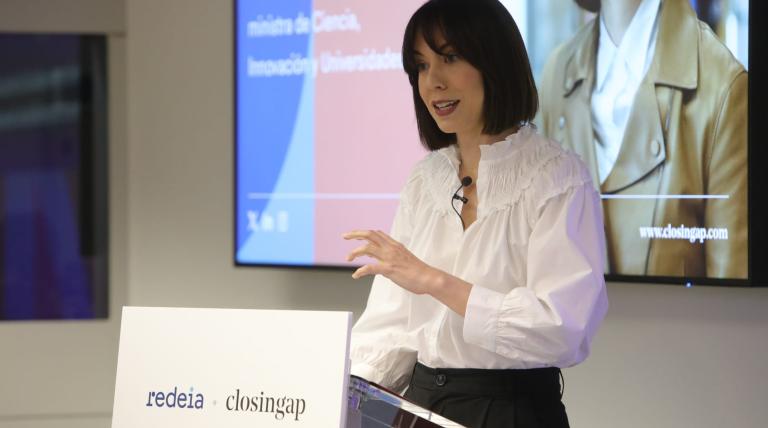We are a global operator of essential infrastructure
- For every man engaged in high-intensity innovative activities, there are only 0.36 women in the same situation (73,000 men versus 26,000 women).
- If female participation in studies related to innovative entrepreneurship were encouraged, there would be over 50,000 women entrepreneurs.
- In 2023, only 7% of financing rounds in Europe were awarded to teams founded exclusively by women, while companies with at least one female founder or co-founder attracted only 18%.
The gender gap in innovative entrepreneurship cost the Spanish economy €5.3 billion in 2023, a figure that amounts to 0.43% of Spain's Gross Domestic Product (GDP). The root of this gap lies in formal education, but extends throughout an individual's entire life cycle, from their academic stage to the time when they decide to start a business.
These are some of the conclusions that can be drawn from the study Opportunity Cost of the Gender Gap in Innovative Entrepreneurship, prepared by Afi and promoted by Redeia. This is the sixteenth in a series of specialised studies developed by the Association.
The report was presented today at Redeia's headquarters at an event that included the participation of Diana Morant, the Minister of Science, Innovation and Universities, who delivered the closing remarks. The presentation also featured contributions from Beatriz Corredor, Chairwoman of Redeia; Lucila García, Managing Director of ClosinGap; Eugenio Martínez, Deputy CEO of Kreab Worldwide; Diego Vizcaíno, Managing Partner of Applied Economics at AFI; Marisol Santana, board member of WA4STEAM; Natalia Rodríguez Núñez-Milara, founder of Saturno Labs and recipient of the National Innovation Award from the Ministry of Science, Innovation and Universities 2023; as well as Sara Correyero, co-founder of IENAI SPACE, an aerospace company that received the Women Start-up Awards 2023.
Diana Morant, Minister of Science, Innovation and Universities, emphasised that "Gender inequality is not only unjust but also costly. It is important for the reports produced by society to combat gender inequality, including in work environments, to provide data not only on what is happening but also on what the country is missing out on."
Beatriz Corredor, Chairwoman of Redeia, stressed that "Unlike other gaps, the gap in innovative entrepreneurship will not close on its own. Therefore, reducing it requires strong measures and policies promoting equal opportunities between men and women, such as breaking stereotypes, providing girls with role models, encouraging their education in areas linked to innovation, promoting the participation and visibility of women in companies, forums, or congresses, and creating inclusive workspaces."
"We need role models who inspire other women in entrepreneurship with their experiences and learning," said Lucila García, Managing Director of ClosinGap, who called for "commitment and joint effort to close the gender gap in innovative entrepreneurship as a lever for transformation towards a more prosperous and equal society for all."
The report identifies five gender gaps in innovative entrepreneurship in Spain, starting with formal education at post-compulsory stages. While women comprise the majority in vocational training studies related to entrepreneurship, their presence significantly decreases in areas linked to innovative entrepreneurship.
At university level, despite women constituting the majority and showing better academic performance than men, they are under-represented in high-intensity entrepreneurial degrees with an innovative focus, since they account for only 33.4% of students in these programmes.
If female participation in studies related to innovative entrepreneurship were encouraged, there would be over 50,000 women entrepreneurs. As a result, the presence of women in this field could increase to 35% by 2030.
The next gap appears with entry into the labour market: women start fewer businesses. In Spain, there are twice as many male self-employed as female self-employed, and in 2023, 7.5% of Spanish men started businesses compared to 6.1% of women.
This disparity in entrepreneurship figures directly results in an economic loss: specifically, the Spanish economy misses out on over €16.4 billion, which represents an opportunity cost of 1.34% of the country's GDP.
The gap is even wider in the case of innovative entrepreneurship: for every man engaged in high-intensity innovative activities, there are only 0.36 women in the same situation (73,000 men versus 26,000 women).
Even when they have decided to start a business, the gender gap persists in aspects such as lack of access to funding for entrepreneurship and the differences in self-perception of one's own abilities and knowledge between women and men, as well as the unequal public visibility and prominence observed between both categories.
Women entrepreneurs take greater risks, as they neither request nor receive the same amount of funding as men. In 2023, only 7% of financing rounds in Europe were awarded to teams founded exclusively by women, while companies with at least one female founder or co-founder attracted only 18%, leaving 75% of the total rounds raised to teams founded solely by men.
And lastly, gender stereotypes and imposed roles increase and perpetuate the gap between women and men in innovative entrepreneurship. Despite this situation, data have shown that when women hold leadership positions, they are excellent managers. So, start-ups founded by women generate 10% more revenue than those founded by men and fail 27% less often when they undertake such ventures.
Reasons for Optimism
The report also presents reasons for optimism. Despite the continued existence of a significant gender gap in entrepreneurship in Spain, discrepancies are narrowing among the younger population (under 35s) and among self-employed individuals having completed further higher education, where there are 0.8 female entrepreneurs for every male entrepreneur.
This underscores the importance of promoting specialised entrepreneurship training among young Spanish women, especially in the early stages of their educational paths, but also throughout their entire professional careers.
Additionally, it has been found that over the last decade (2014-2023), the gender gap in the probability of starting a business has decreased from 0.41 to 0.29. This indicates the value of exploring which factors have contributed most significantly to this reduction in entrepreneurial inequality.















